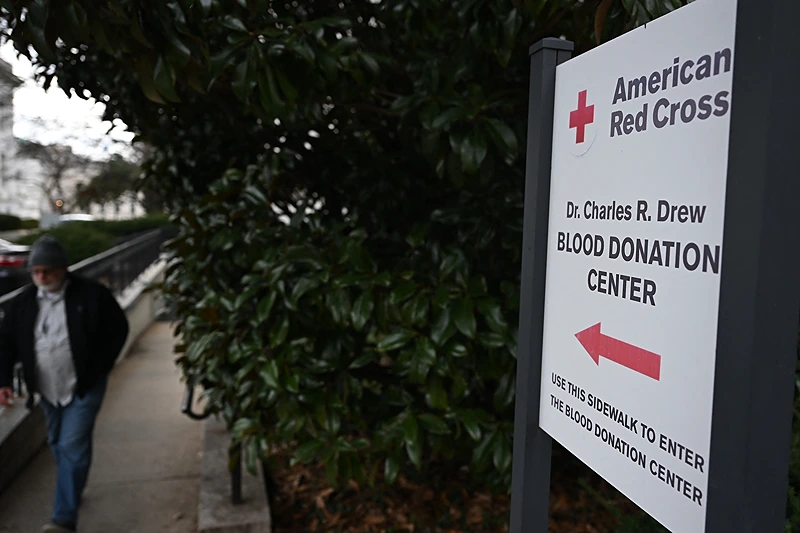
OAN Staff Brooke Mallory
1:19 PM – Tuesday, August 6, 2024
Officials in the humanitarian organization say that severe heat may be partially to blame for the announced emergency blood shortage that the American Red Cross brought to light on Monday.
The organization claimed in a news release that since July 1st, its national blood inventory has decreased by at least 25%.
Over 100 drives in every U.S. state where the Red Cross collects blood have been impacted in the past month by rolling heat waves and record temperatures, the organization theorized. Based on estimated hospital demand, this has resulted in drives ending early or being canceled, which has decreased the number of donors and led to a shortage of over 19,000 donations in July, according to the Red Cross.
The Red Cross also noted that travel and seasonal activities are additional factors that usually restrict blood donations throughout the summer.
Since August marks the beginning of the Atlantic hurricane season, which is occasionally accompanied by flooding and power outages that can postpone blood drives and otherwise result in low donor turnout, the Red Cross believes that the month of August will also pose a threat to the replenishment of the available blood supply.
According to the Red Cross, it provides over 40% of all blood donations in the country.
“When we start to have a shortfall in donations that has a really significant impact,” said Dr. Baia Lasky, the division chief medical officer for the Red Cross. “This time of year is challenging for us. The demand for blood is constant throughout the year whether its trauma patients, cancer patients.”
The Red Cross said that at this time, they are primarily in need of Type O blood donors for two reasons. Since type O positive blood is the most prevalent blood type, most recipients of blood will require type O blood.
Secondly, people who have the rare O negative blood type are considered “universal donors,” which means that any patient, regardless of blood type, can get transfusions from them. Additionally, people with O negative blood can only receive other O negative blood. Only 7% of the population have O negative blood, according to the Red Cross.
The Red Cross stated that it had to scale back on O blood distributions to hospitals due to the extremely low supply of the blood type at the moment.
“We will welcome anyone of any blood type, but O negative is considered universal and O positive is nearly universal,” Lasky said. “It’s the most transfused blood type and for patients with unknown blood type for emergency transfusion.”
Additionally, she mentioned that platelets, which have a five-day shelf life and are frequently essential for trauma and cancer patients, are in demand as well.
The American Red Cross has already issued previous warnings regarding the possibility of a shortage of blood. Earlier this year, the organization said that it has been dealing with the lowest number of blood donors it has seen in 20 years.
Only 3% of those who are old enough, roughly 6.8 million Americans, give blood annually, according to the Red Cross.
The Red Cross is also providing a $20 Amazon gift card via email to everyone who donates blood by August 31st in an effort to increase donations.
“As you go about your summer plans, remember there are those who are in hospitals,” Lasky continued. “We really need people to come out and donate.”
Stay informed! Receive breaking news blasts directly to your inbox for free. Subscribe here. https://www.oann.com/alerts

